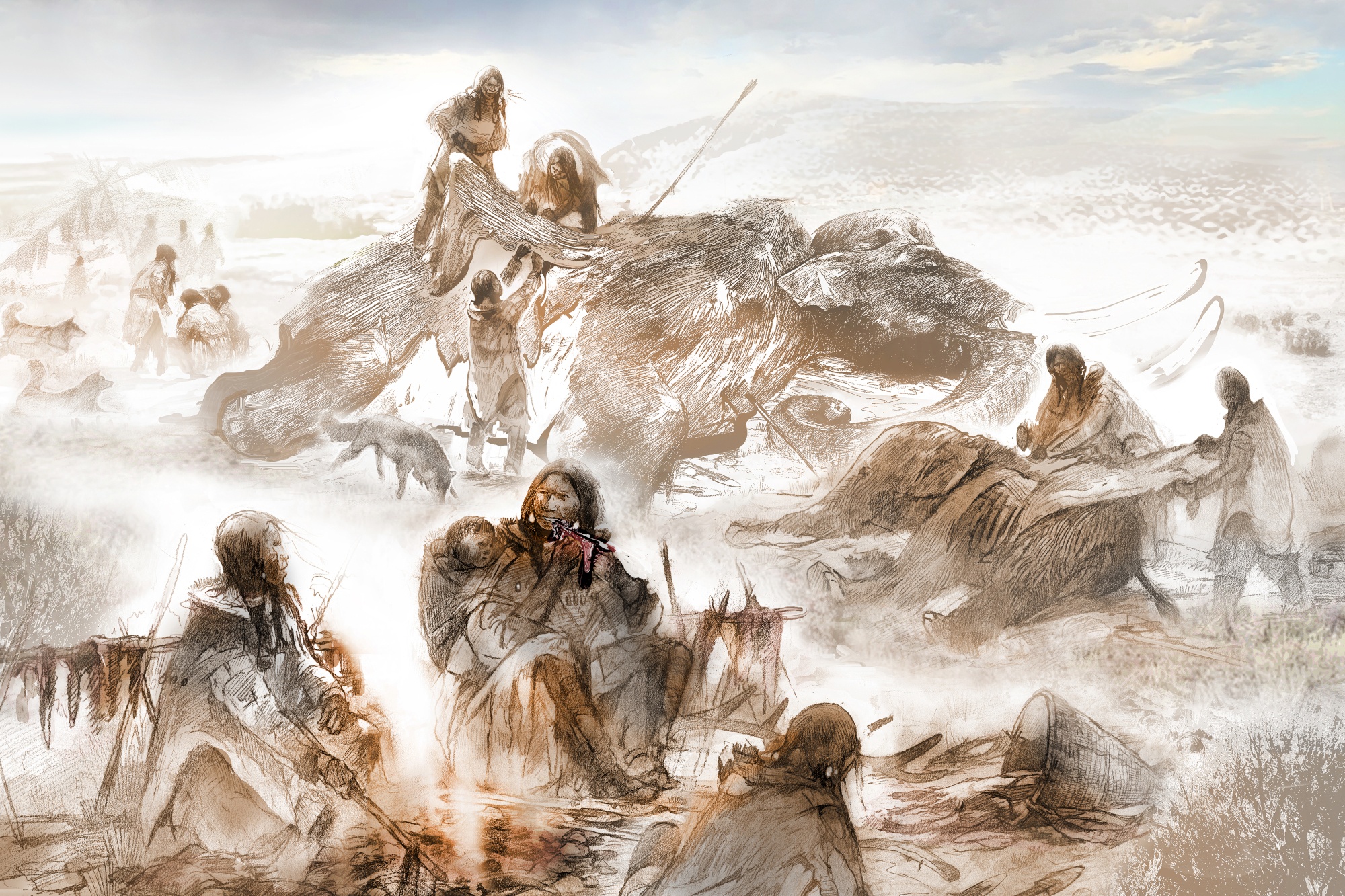- Total News Sources
- 4
- Left
- 3
- Center
- 1
- Right
- 0
- Unrated
- 0
- Last Updated
- 382 days ago
- Bias Distribution
- 75% Left


New Insights on Early American Diets and Domestication
Recent studies have provided new insights into ancient human-animal relationships and diets in North America. Evidence from Alaska suggests early Americans may have begun domesticating canids, such as wolves, earlier than previously thought, with salmon consumption indicating a human-canid relationship around 12,000 years ago. Meanwhile, isotope analysis of ancient remains in Montana reveals that the Clovis people heavily relied on mammoths as a primary food source, challenging previous theories that they were generalist foragers. This reliance on large mammals aided their rapid spread across the continent, potentially contributing to the extinction of these species at the end of the Ice Age. These findings collectively enhance our understanding of early human lifestyle and migration patterns in prehistoric North America.




- Total News Sources
- 4
- Left
- 3
- Center
- 1
- Right
- 0
- Unrated
- 0
- Last Updated
- 382 days ago
- Bias Distribution
- 75% Left
Related Topics
Stay in the know
Get the latest news, exclusive insights, and curated content delivered straight to your inbox.

Gift Subscriptions
The perfect gift for understanding
news from all angles.
